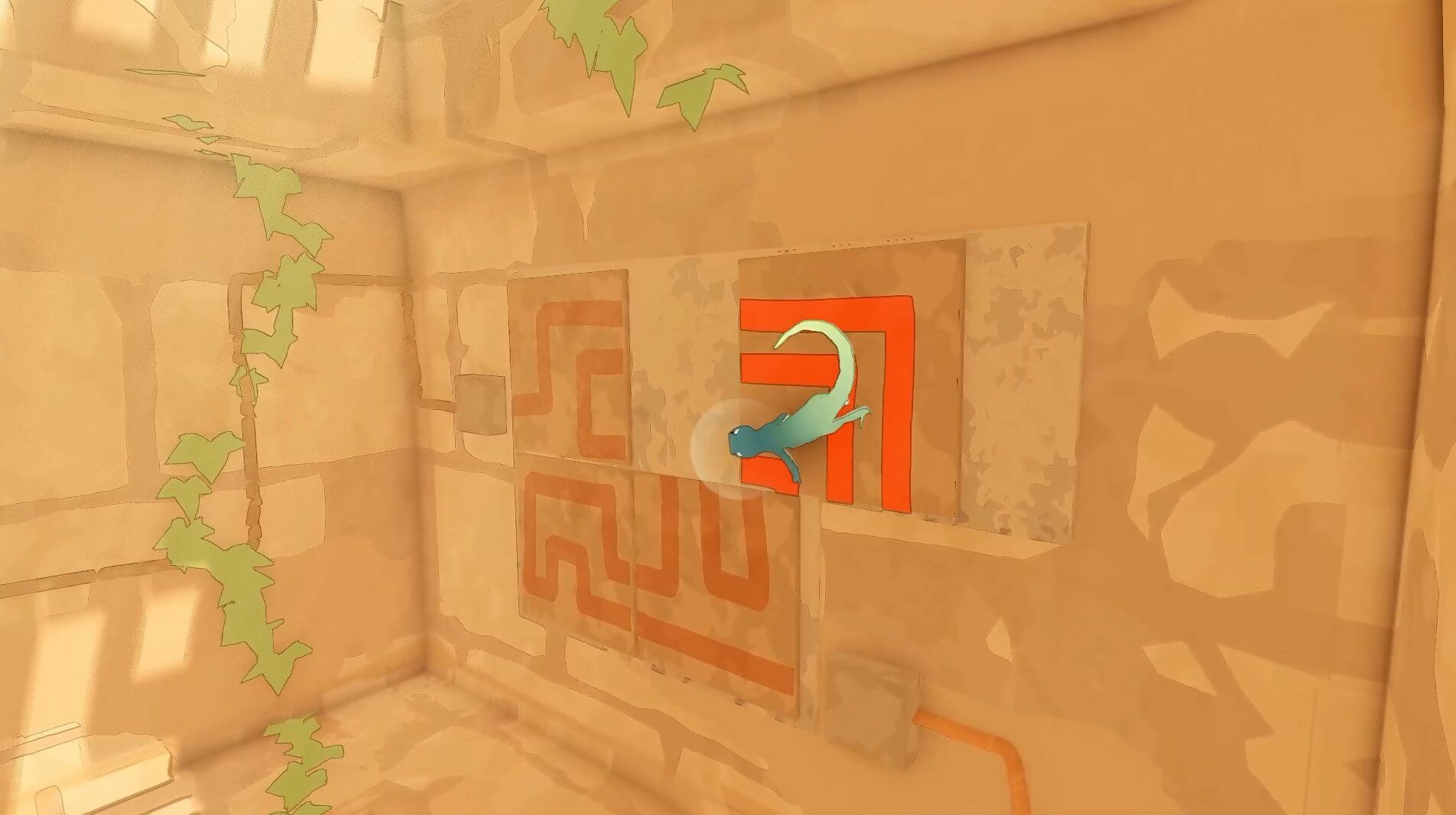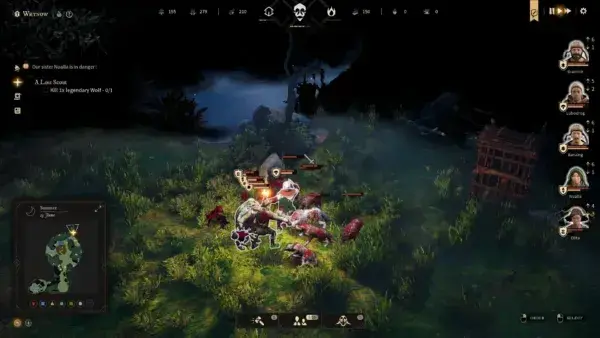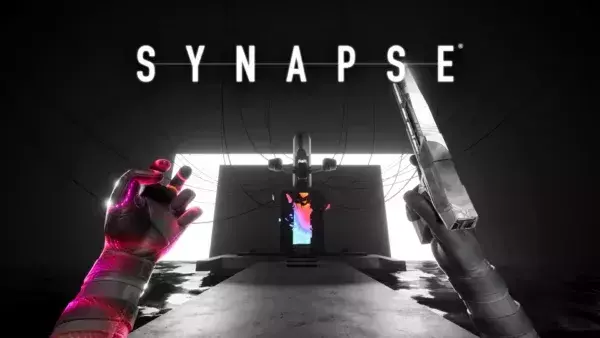
Like many people during March 2020’s initial lockdown, history undergrad Louis Waloschek sought a creative avenue that he could pour time into when not tied up with university work. Having already made a small name for himself by making mods within the Minecraft community, game development seemed like a great choice – especially since it’d also be an opportunity to tie in his love for his chosen area of study. The one thing he didn’t have at that time, however, was a love of lizards.
“It started because I was teaching my friend how to code at uni,” Waloschek says of The Gecko Gods’ humble origins. “She wanted to make a tile-based game with a gecko, so we made this gecko for that very simple tile game. I was working on a gardening game at the time, but then I had this side project that was a Zelda-esque, third-person sort of game set around a Moroccan river valley. I was having a lot of trouble with how the character controlled because there was nowhere to walk. It was all in the mountains! So I pulled in this gecko from this thing I’d done with my friend, and I was like, ‘Where am I going to walk – on the walls?’. So that’s how it started when I was in the middle of uni.”

The Gecko Gods follows one reptile’s journey to save his lost friend the only way he knows how: endless climbing and puzzle-solving.
Waloschek is still in the midst of study (this time for his master’s degree) over two years on, but since then, he’s gained a much clearer focus for how puzzle-solving and exploration in The Gecko Gods will work, as well as a deal with Super Rare Games’ new Originals publishing division. He somewhat unsurprisingly cites The Legend of Zelda as a core influence, yet is intent on infusing that franchise’s recognisable hallmarks with a vibe that is noticeably more pared-back and peaceful. After all, the mysterious temple ruins your budding gecko finds itself clambering through might be littered with puzzles and obstacles to overcome, but there’s not one enemy in sight.
“A lot of how I design is by thinking about what could be stressful interactions, and considering ways I can reduce that,” explains Waloschek on maintaining a relaxed atmosphere and environment. He suggests there are multiple aspects to think about when trying to achieve this, including “the camera, your movement, and the way you interact with things”. It’s this ethos (coupled with his love for all things ancient) that inspired the solo developer to set his game on a far-off island that once played host to a fictional lost civilisation; turns out it’s a perfect biome in which to set a tranquil tone, as players will be regularly accompanied by the sound of fluttering trees, the nearby ocean, and the like. “I hope it’s not stressful to play, but it’s up to other people to decide,” says Waloschek.
So adamant is Waloschek on keeping players calm under pressure when progressing through the game, mandatory obstacles have been made to meet a specific difficulty threshold so as to try and avoid any frustration. Players that do crave a challenge, however, won’t have to look far. “If something gets designed and doesn’t really fit [because] it’s too difficult or it’s not relaxed, then that gets moved to be more optional content in the game,” he says. The Gecko Gods otherwise adheres to the traditional dungeon-by-dungeon structure quite closely, but an element of choice is involved in terms of the order you approach them.

The ancient island you’ll be exploring handily acts as your main hub, stretching out to both optional and mandatory temple dungeons.
Even still, it’s hoped that thrusting players into an overworld primed for light bouts of discovery will help them find their own pace, before treating them to large, puzzle-filled temples that almost act as the main event. Once you’re inside one of them, where you go and how you go about finding a temple’s specific solution is entirely up to you. And while being able to scale any wall or scramble up to any surface to give the game a welcome sense of freedom, this unshackled approach to traversal meant Waloschek had to think laterally in terms of level and puzzle design.
“The whole structure of the game ended up being designed around trying to make climbing as enjoyable as possible.” Waloschek does this by imposing very few ground rules on the player. “There’s no arbitrary ‘You can’t walk on this surface’, which was quite important to me,” he says. “I think once you give the player this complete sense of freedom to walk around, you don’t want to randomly take that away.” From pushing around boulders into the correctly sized slot to biting down on chains and revealing a doorway, your skillset as a gecko is made known to you from the off. That way, by changing what’s presented around the player, rather than constantly what’s asked of them, exploration and problem-solving always serves as the main thrust rather than outright dexterity. “It’s definitely not a precision platformer,” chuckles Waloschek.
Despite being set on a painterly, watercolour-like island drenched in the sun, The Gecko Gods looks well on-track to accomplish its markedly chill tone and feel. Playing from the perspective of a plucky, cold-blooded protagonist, why would we expect anything else?
CIVILISATION GONE BY
Narrative takes a backseat compared to exploration in The Gecko Gods, but players eager to know more about the ancient society this island once belonged to will find it – they just need to look hard enough. “[Story] doesn’t form a big part of your journey through the world,” Waloschek says. “It forms a background and a second layer that’s there to discover.” What subtle environmental clues are there have been engineered using a mixture of other real-life cultures from history: “The biggest inspirations are South American civilisations like the Mayans and the Aztecs.”





